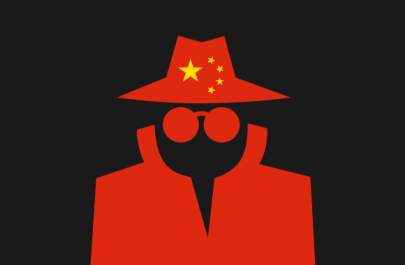China - Espionage in America
Monday, August 14, 2023
Written by Laurence F Sanford, Senior Analyst ASCF
Categories: ASCF News ASCF Articles

The Chinese Communist Party (CCP) is waging espionage warfare against the United States. Computer hacking, human intelligence, elite capture, university enrollments and endowments, and technology purchases are some techniques used by the CCP in conducting espionage.
Espionage is defined as the act of obtaining secret information. The person obtaining the information is called a spy.
Computer hacking of government personnel databases, military secrets, and industrial technology is the primary mode of CCP espionage. A future article will discuss this in more detail.
Human intelligence gathering of secrets by the CCP utilizes spies on the ground. Here are a few examples of the range of human spying activities:
● Two U.S. Navy sailors were recently arrested for allegedly spying for China --- Jinchao “Patrick” Wei, a 22-year petty officer 2nd class, and Petty Officer Wenheng Zhao. Wei was born in China and naturalized as a U.S. citizen in 2022. (Why was he allowed to enroll in the Navy when he was a citizen of China?) Both are accused of having passed along defense information for money.
● The Justice Department charged six Chinese citizens with working on behalf of the CCP to recruit U.S. citizens to undermine the federal prosecution of Chinese technology company Huawei.
● Yanqing Ye, a Chinese People’s Liberation Army (PLA) lieutenant, studied for two years at Boston University’s Department of Physics, Chemistry, and Biomedical Engineering. He allegedly sent documents and information pertaining to research and U.S. military websites to China. He is believed to be currently in China.
● Xu Yanjun, a CCP intelligence officer, was convicted of trying to steal GE aviation technology for making jet engine blades.
Christopher Wray, Director of the FBI, testified that CCP spying is so widespread that the FBI is launching an average of two counterintelligence investigations a day. Over 2,000 cases are currently underway. He added that “there is no country that presents a broader, more severe threat to our innovation, our ideas, and our economic security than China.” The scale of CCP hacking and the amount of personal and corporate data stolen is greater than that of every other country combined.
See the Center for Strategic and International Studies (CSIS) for a more detailed survey of Chinese espionage.
In 2018 the “China Initiative,” a national security program, was created to address CCP espionage in universities and research institutions. Harvard professor Charles Lieber, chair of the Chemical and Chemical Biology department, was prosecuted for concealing his affiliation with the Wuhan University of Technology, his association with the CCP Thousand Talent recruitment program, and filing false income tax returns. Harvard’s Lieber Research Group received over $15 million in federal research grants from 2008 to 2018. Lieber received $50,000 a month from Wuhan University plus $1.5 million to establish a research lab at Wuhan. In other words, U.S. taxpayers were funding Harvard research, which was passed on to the CCP. Lieber did not report the CCP income on his tax forms and lied to federal authorities about his participation in the Thousand Talent program. He was found guilty and served two days in jail.
The Department of Justice scrapped the China Initiative in 2022 due to complaints from civil rights groups saying it created a climate of fear among Asian Americans. (What about the climate of fear that all Americans should have of CCP espionage?) MIT Professor Gang Chen was accused of hiding ties to China when applying for a federal energy grant. The charges were ultimately dropped because, at the time of the grant application, there was no requirement to mention his collaboration with a university in Shenzhen, and his Chinese ties had MIT’s support. Since then, U.S. Energy Department grant applications include questions on potential conflicts of interest, including foreign funding.
The CCP Thousand Talents Program has lured over 10,000 scientists worldwide to work in or collaborate with China. Recruitment is principally, but not exclusively, from overseas Chinese communities. The lure is huge sums of money, love of the motherland, and sometimes family coercion. Over the past three decades, the Los Alamos nuclear laboratory in New Mexico has seen over 160 researchers return to China to help with nuclear and advanced weapons systems.
Summary
World domination is the CCP’s goal. Following the ancient Sun Tzu’s “Art of War” theory of winning wars without kinetic action through espionage and gray zone activities, the CCP is waging unrestricted warfare against the United States.
Action:
1. Recognize that the CCP is a totalitarian regime with the intent to dominate the world. The CCP is not a friend of America or of democracy.
2. Increase counter-intelligence efforts against CCP organizations and actions.
3. Eliminate all U.S. funding to any research and university organizations in China.
4. Defund U.S.-based research organizations and universities that work with the CCP or CCP fronts.
5. Forbid Chinese nationals from attending U.S. science or engineering schools. (This should free up student slots for Americans!)
6. Mobilize all government agencies against CCP infusion of fentanyl and other opioids into the U.S.
7. Ban Chinese internet apps such as TikTok in the U.S.
Peace Through Strength
Laurence F. Sanford
Senior Analyst
American Security Council Foundation
www.ascf.us
Please donate through www.ascf.us to support our efforts.




